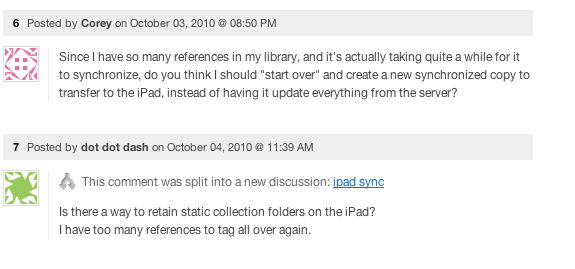When the topic of discussion changes, how do you indicate that? Tender Support seems clunky in some ways, but their forking mechanism helps conversations stay focused on their topic:
Lately forking has also been on my mind as the Library Linked Data group edits and reorganizes our draft report: wiki history and version control is helpful, but insufficient. What I miss most is a “fork” feature, where you could temporarily take ownership of a copy (socially, this indicates that something is a possibility, rather than the consensus; technically, it indicates provenance, would allow “show all forks of this”, and might help in merge changes back). Perhaps naming and tagging particular history items in MediaWiki could help address this, but I think really I want something like git.
I’ve seen a few examples of writing and editing prose with git; I’d like to get a better understanding of the best practices for making collaborative changes in texts with distributed version control systems. Surely somebody’s written up manuals on this?
